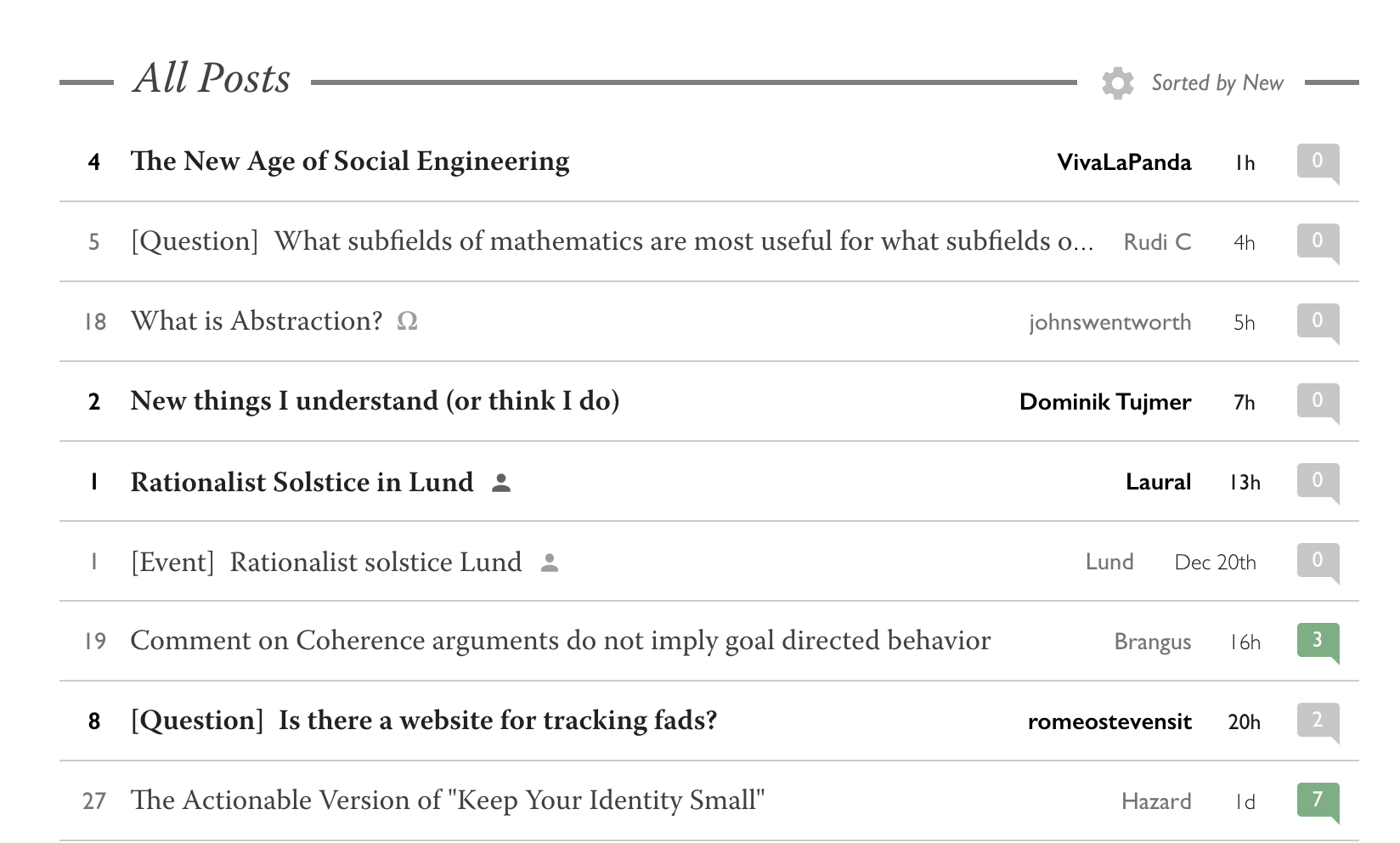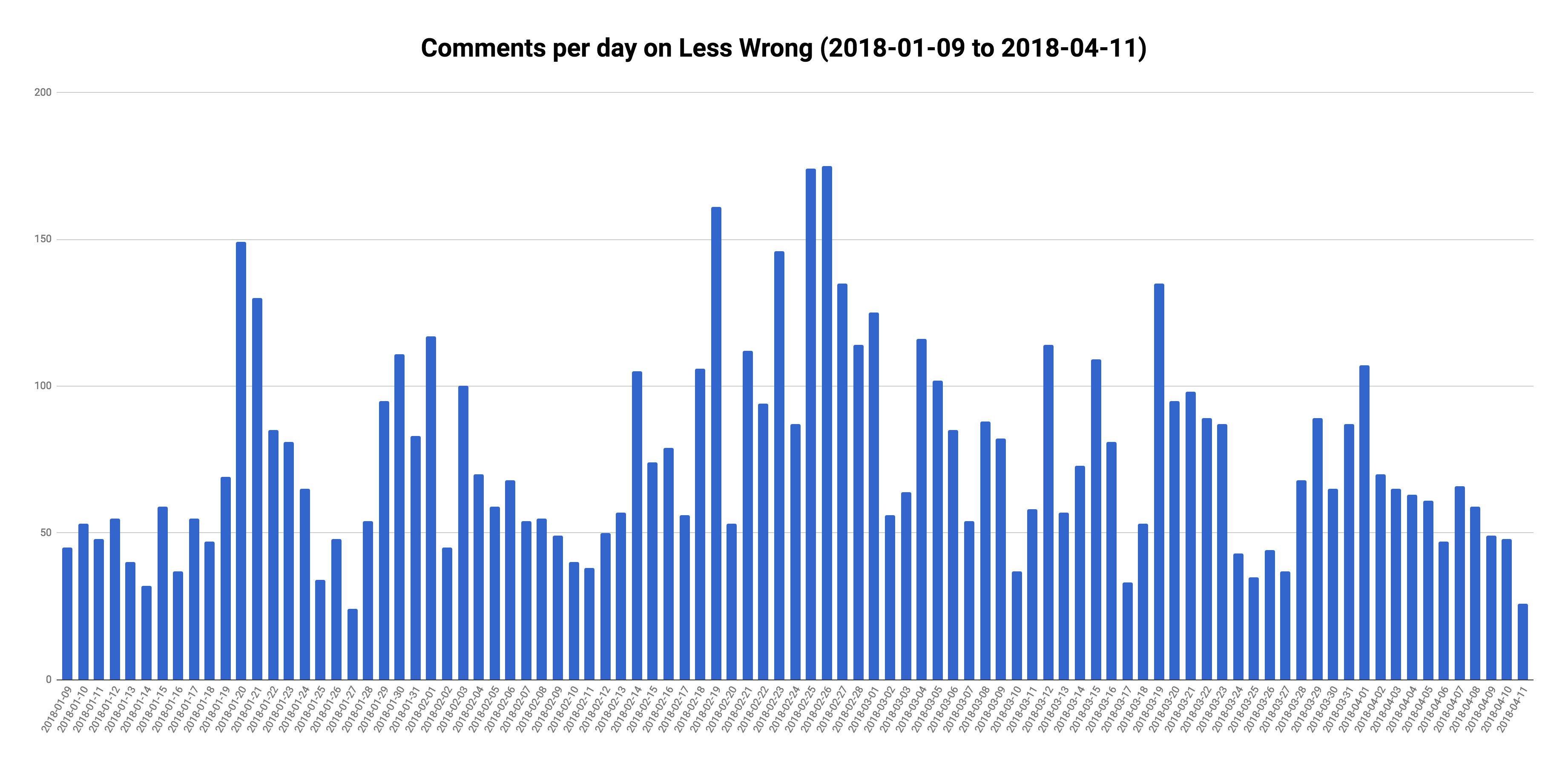This is an experiment in short-form content on LW2.0. I'll be using the comment section of this post as a repository of short, sometimes-half-baked posts that either:
- don't feel ready to be written up as a full post
- I think the process of writing them up might make them worse (i.e. longer than they need to be)
I ask people not to create top-level comments here, but feel free to reply to comments like you would a FB post.



I am very confused about how to think (and feel!) about willpower, and about feelings of safety.
My impression from overviews of the literature is something like "The depletion model of willpower is real if you believe it's real. But also it's at least somewhat real even if you don't?"
Like, doing cognitive work costs resources. That seems like it should just be true. But your stance towards your cognitive work affects what sort of work you are doing.
Similarly, I have a sense that physiological responses to potentially threatening situations are real. People who feel defensive have a harder time thinking in truthseeking mode rather than "keep myself safe" mode. But, it also seems plausibly-true that if you naively reinforce feelings of defensiveness they get stronger. i.e. if you make saying "I'm feeling defensive" a get out of jail free card, people will use it, intentionally or no. (there's a weird video about parents tricking babies into thinking they've been hit on the head when they haven't, and the babies start crying as if they're hurt. I have no idea if this is just cute selection effect but sort of illustrates the point)
There's a practical question re: "what sort of norms or advice do you want to encourage about how people deal with defensiveness, and with willpower?". But then there's also just a "what the hell epistemic state do you actually want to have?" as well as "how do you communicate about this?"
If you're a manager at a company, maybe you want to have a model of willpower depletion so you can make good tradeoffs, but you don't want your employees to dwell upon it much? But this obviously collapses as soon as there's multiple management layers. And in any case it's not a sustainable equilibrium. (You can't stop people from learning about willpower. Although you can make a choice not to emphasize it)
Meanwhile, if I'm just trying to manage myself as a person with goals, what should my epistemic state on willpower be?
Where in the post did you explain or give contextual clues for someone to infer that you meant "outlaw" in this sense? You used "outlaw" three times in that post, and it seems like every usage is consistent with the "outlaw = ban" interpretation. Don't you think that absent some kind of explanation or clue, "outlaw = ban" is a relatively natural interpretation compared to the more esoteric "in the sense of outlawing certain chess moves, and in the sense
... (read more)